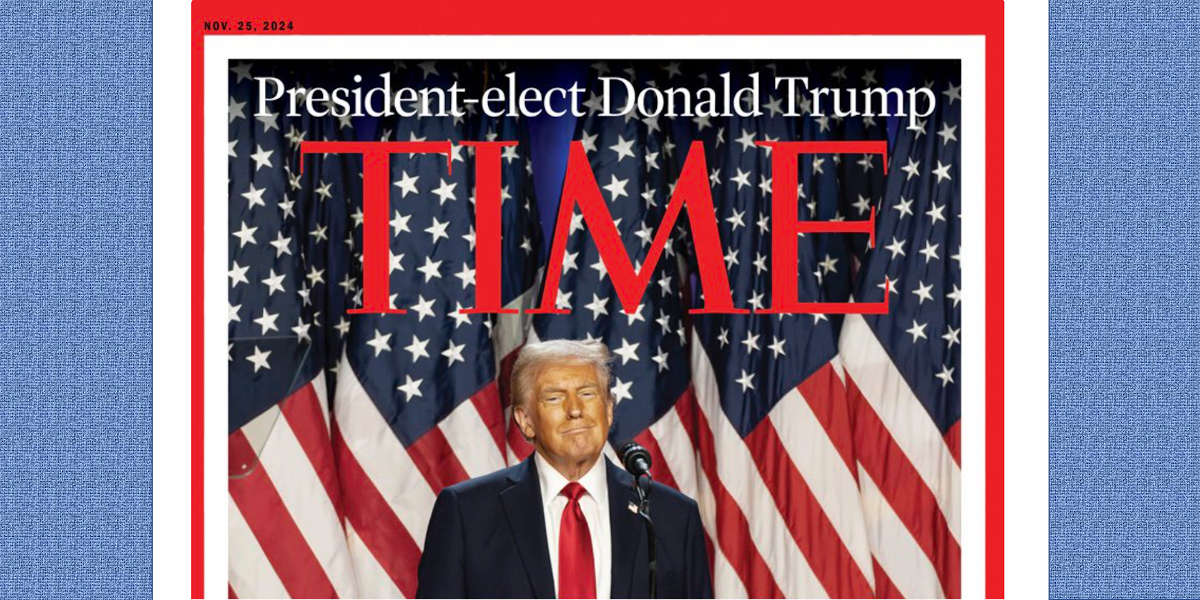In the picture
Cover of 'Time' magazine released after Donald Trump's reelection.
A new mandate from Donald Trump puts the European Union on uncomfortable ground. Following the strict interests of the United States, as interpreted by Trump, regardless of any convenience for European countries, makes Washington more of an antagonist than the partner it is supposed to be. It is not that the last Democratic administrations acted against national benefit, but they practiced with this side of the Atlantic the "do ut des" characteristic of the multilateralism in which the United States had moved during the previous decades. The disagreements that Trump had with Brussels during his first four years in the White House will probably be reproduced in the next four years.
Regardless of the reasons that explain the Republican electoral triumph (which obviously exist; not understanding them is a serious problem for the Democratic Party, which if it does not make the right diagnosis may continue to lose support), as well as the absolute legality of a significant part of the electorate to vote for Trump (even though many media have demonized that option, overlooking that the same can be done with everything related to the 'woke' and extreme versions of gender ideology), here we simply want to focus on how the European Union faces the new stage.
One issue core topic is that of security, which EU members manage primarily through NATO. Trump's first presidency strained relations within the Atlantic Alliance, but pressures on its members to increase their defense spending had the positive consequence of budget increases in almost all countries. This contributed to increased military manning within the EU, which has allowed Europe to advance its desire to back up its claims as a geopolitical player with capabilities.
If the final balance of the previous experience in relation to NATO can be considered satisfactory, even if its management was bitter for the Europeans, the war in Ukraine is today a challenge that can lead to serious fractures in the coalition. Trump's unpredictability makes it difficult to know how he will really deal with his financial aid to Kiev, but his insistence during the campaign on downplaying any warmongering tone - on Tuesday night, in claiming victory, he said again that he will not start wars, but stop them - invites to think that he may push for a settlement with Russia that would certainly not satisfy Ukraine. The close ties that the Trump administration itself maintained with Poland, which today has become the Western bulwark against Moscow's expansionism as West Germany once was against the USSR, may be altered and could upset NATO's internal dynamics. These will also be stressed by the attraction between Trump and fractious European elements within the Alliance, such as Hungary.
In the relationship with China, Trump and the EU may move in a common direction, although they will probably show little coordination. Trump initiated the policy of decoupling with respect to the Chinese Economics , with the abruptness of a sudden war of tariffs that Biden has then moderated in rhetoric but has prolonged, such as his latest decision to double the price of Chinese electric cars that want to be sold in the United States. Europe has followed suit, although less aggressive tariffs speak of conflicting domestic interests, with an export-dependent Germany that does not want to close off the Chinese market (U.S. export dependence is much, much less).
The trade protectionism already implemented by Trump during his previous presidency does not bode well for Spain. The emblematic aluminum war sustained by Trump with Europe had no special effect in our case, but the difficulties placed on the export there of products such as olive oil or black olives did. As president, Trump imposed tariffs on around 14% of total imports, including Spanish olive oil, which at the beginning of this year accounted for 35% of the US market. It is worth noting that protectionism is a growing trend in a "post-globalized" world and that Biden himself maintained his predecessor's 25% tax on olive oil from Spain. However, a reinforced system of tariffs has occupied a special place in the campaign of the Republican candidate , who has announced taxes of between 10% and 20% for the import of goods, such as those purchased from Europe. At the same time, major Spanish energy companies, such as Iberdrola, may end up having their investment program modified, given the new president's reticence towards green transition subsidies.
Not that any course that an administration led by Kamala Harris would have taken would have been better for Europe or Spain, but it is normal that, in the face of Trump's populism, narcissism and unpredictability, many here are crossing their fingers.
* A somewhat shortened version was published by the 'Diario de Navarra' (November 7, 2024). The author is director de GASS.

